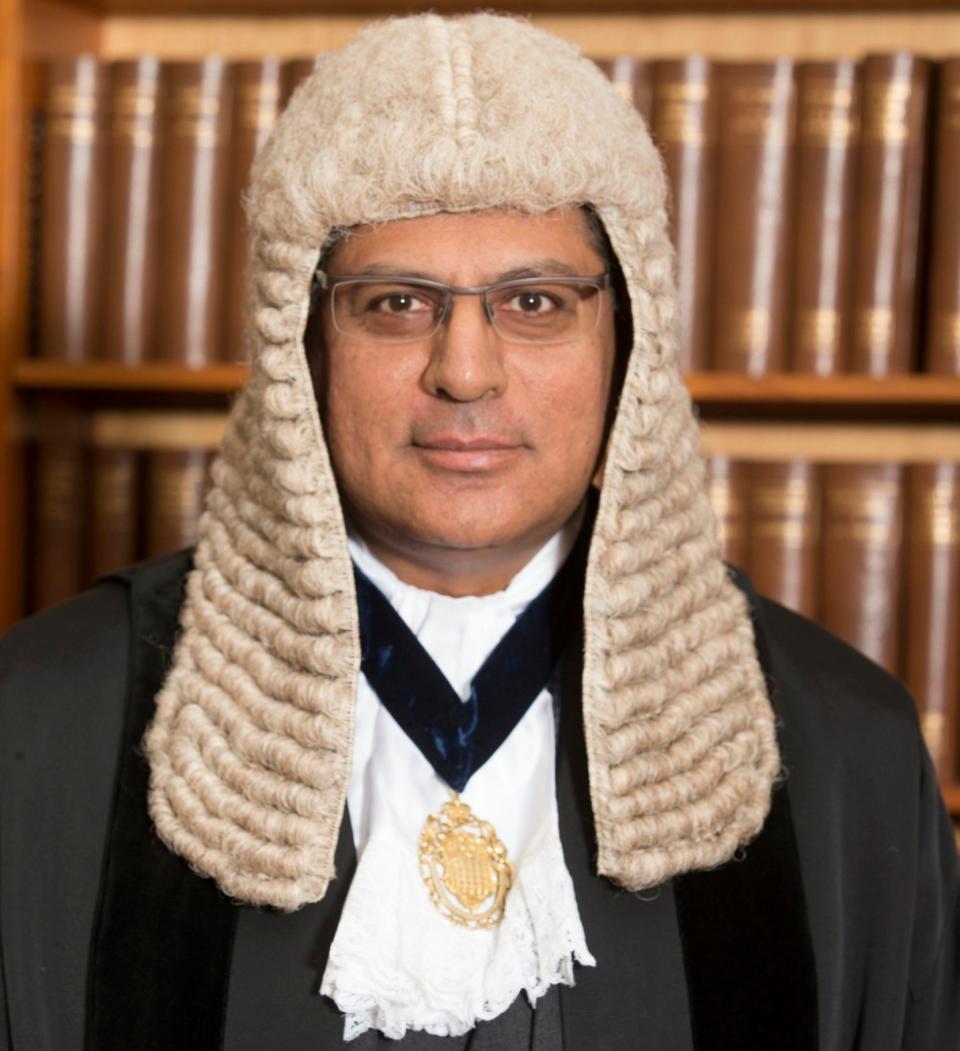Refugee who wore paraglider image at protest to have asylum status reviewed

The refugee who wore a paraglider image at a pro-Palestine protest is to have her immigration status reviewed, The Telegraph understands.
Heba Alhayek, 29, was one of three women convicted this week under the Terrorism Act after they displayed the images following the October 7 terror attack on Israel which killed 1,200 people and saw Hamas fighters cross the border using paragliders.
The three, including Noimutu Olayinka Taiwo and Pauline Ankunda, were handed conditional discharges for “carrying or displaying an article to arouse reasonable suspicion” that they were supporters of Hamas.
Alhayek was granted refugee status in the UK after claiming that her life would be in danger if she returned to Gaza because of her family’s criticism of Hamas, her lawyer told the court.

It is understood the Home Office is now looking into the issues arising from her conviction with a spokesman saying supporting a terrorist group would not be tolerated.
“The Government will always prioritise the safety and security of the UK, the offences associated with proscription make it clear that supporting banned terrorist groups will not be tolerated,” said the Home Office spokesman.
It follows a crackdown on foreign nationals for alleged anti-Semitic behaviour that saw an exiled Egyptian television presenter have his visa revoked for allegedly publicly backing Hamas. Moataz Matar was also placed on a watchlist, barring him from returning to Britain, after taking part in pro-Palestinian protests in London.
The disclosure came amid growing criticism of the judge in the case - Tan Ikram - after it emerged that he liked a social media post branding Israel a terrorist.
Judge Ikram told the court he had decided “not to punish” the three women because, although they had “crossed the line” by displaying the images, he accepted they were not “seeking to show any support for Hamas”. The maximum sentence for the offence is six months in jail, but Judge Ikram limited it to discharges.

It emerged on Wednesday that three weeks ago, the deputy senior district judge liked a LinkedIn post by a barrister who had previously promoted conspiracy theories claiming that Israel allowed the October 7 attack.
The post, by barrister Sham Uddin, stated: “Free Palestine. To the Israeli terrorist both in the United Kingdom, the United States, and of course Israel you can run, you can bomb but you cannot hide - justice will be coming for you.”
Judge Ikram may now face disciplinary action after judicial guidance issued last year stated that judges known to have strong views should consider whether to hear a case. According to social media guidance for judges, they should “be aware that you can convey information about yourself and your views by … liking posts”.
The Government is, however, powerless to take action to increase the sentences. Because the charges against the three women were “summary” offences only triable in the magistrates court, they are not covered by the scheme that allows the Attorney General to seek to reverse “unduly lenient” sentences.
The scheme enables Victoria Prentis, the Attorney General, to refer a case to the Appeal Court to reconsider a sentence if there is a complaint that it is “unduly lenient”.

Downing Street described the sentencing decision as “deeply troubling”. A source said: “Serious questions are being raised in government on how a judge posting this online was able to preside over this landmark case and what this means for the sentencing decision.”
Suella Braverman, the former home secretary, tweeted: “Utterly shocking that a member of the judiciary may have behaved in this way. With anti-Semitism at an all-time high, judges must be impartial and beyond reproach. Justice must be done and it must also be seen to be done. The sentence must be reviewed.”
After the sentence, the Jewish Leadership Council said that the women had got off “scot-free”.
Lord Wolfson KC, a former justice minister, said: “Of course judges, like the rest of us, have political opinions. But the longstanding practice of the judiciary was to keep those opinions private, at least for so long as the judge continued to sit.
“In an age of social media, where it is so easy to ‘like’ politically controversial posts, that practice seems all the wiser, both to ensure that justice is done, and also — which is as important — that justice is seen to be done.”

 Yahoo News
Yahoo News 
